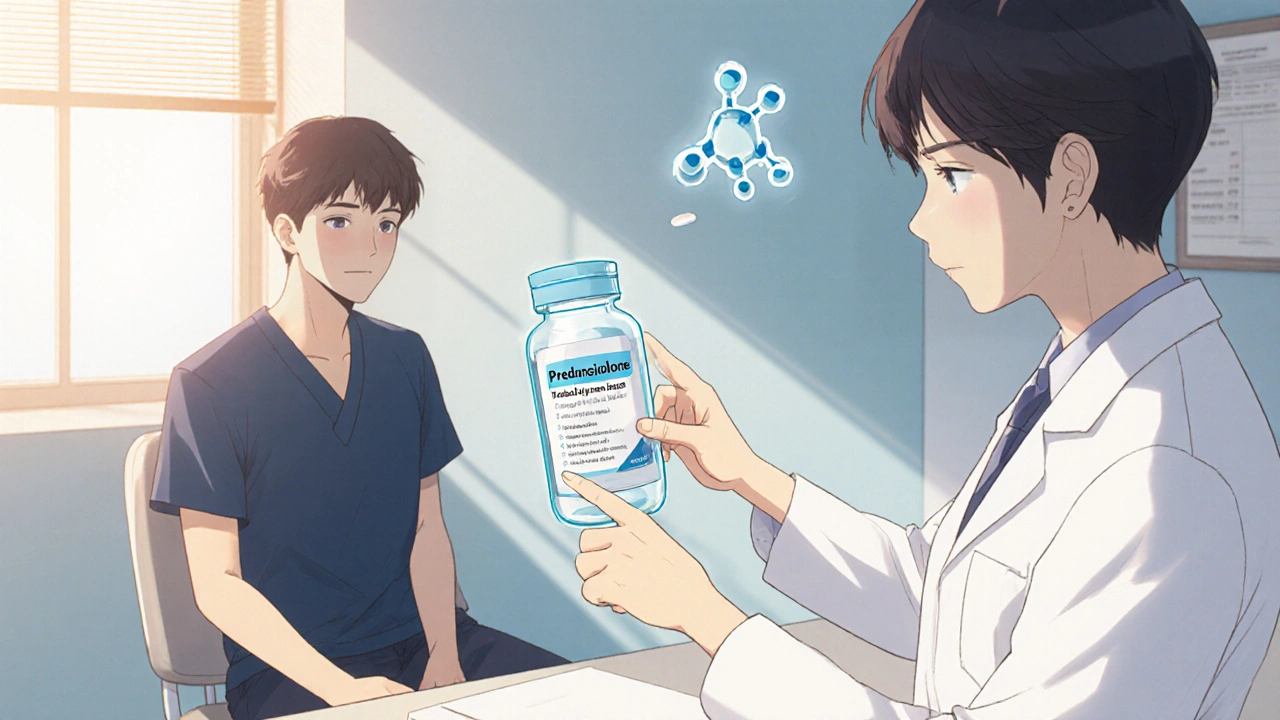
Prednisolone vs Alternatives: Which Steroid Is Right for You?
A detailed guide comparing prednisolone with common steroid alternatives, covering potency, side effects, dosing, and how to choose the best option for your health.
Read MoreWhen your body overreacts to injury or illness, corticosteroids, synthetic versions of hormones your adrenal glands naturally make to control inflammation and immune response. Also known as steroids, they are among the most widely prescribed drugs for conditions ranging from asthma to rheumatoid arthritis. Unlike anabolic steroids used by athletes, corticosteroids don’t build muscle—they quiet down your body’s alarm system.
These drugs work by blocking the chemicals that cause swelling, redness, and pain. That’s why they’re used for everything from eczema rashes to flare-ups of lupus. But they don’t just calm inflammation—they also suppress your immune system. That’s helpful if your immune system is attacking your own joints or lungs, but it also means you’re more vulnerable to infections. People on long-term corticosteroids often get sick more easily, and healing takes longer. That’s why doctors don’t hand them out like candy.
There are many types. prednisone, an oral corticosteroid commonly used for autoimmune conditions and severe allergies, is one of the most familiar. hydrocortisone, a weaker form often found in creams for skin rashes, is used topically. Then there are injections—into joints, the spine, or muscles—each chosen based on where the problem is. The dose, duration, and form all matter. A short course for a bad allergic reaction is very different from taking pills for years to manage Crohn’s disease.
Side effects aren’t rare. Weight gain, mood swings, high blood sugar, thinning skin, and bone loss are all real risks with long-term use. That’s why many people stop them too soon—only to have symptoms come back harder. Others stay on them too long without monitoring. The key is balance: enough to control the disease, but not so much that you trade one problem for five others. Regular check-ups, calcium supplements, and blood sugar tests are often part of the plan.
What you’ll find in the posts below isn’t just a list of drugs. It’s a collection of real-world stories and comparisons: how corticosteroids interact with other medications, what happens when you stop them abruptly, how they affect sleep and mood, and why some people respond better than others. You’ll see how they tie into conditions like vasculitis, gout, and even skin disorders. This isn’t theory. It’s what people actually deal with when they’re on these drugs—what works, what doesn’t, and what no one tells you until it’s too late.

A detailed guide comparing prednisolone with common steroid alternatives, covering potency, side effects, dosing, and how to choose the best option for your health.
Read More